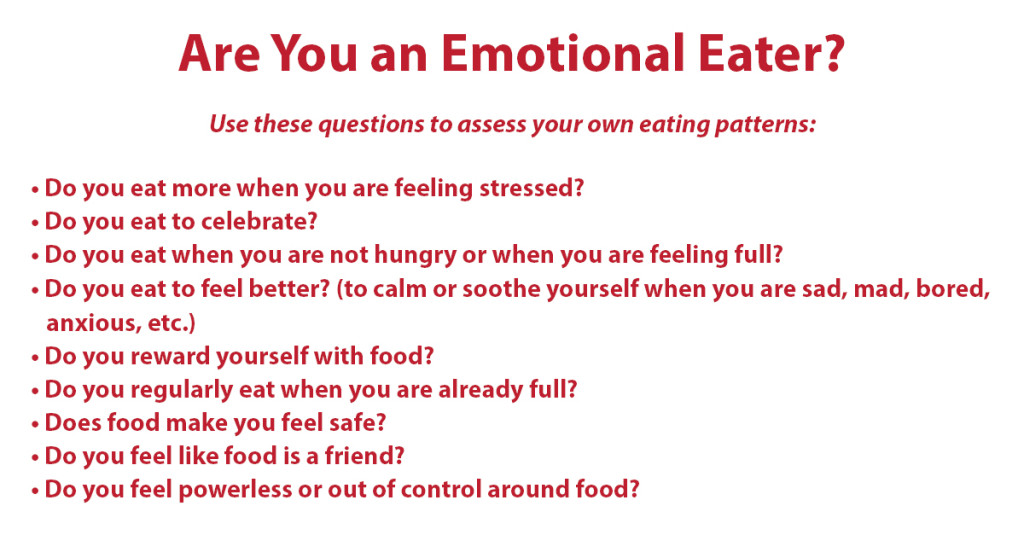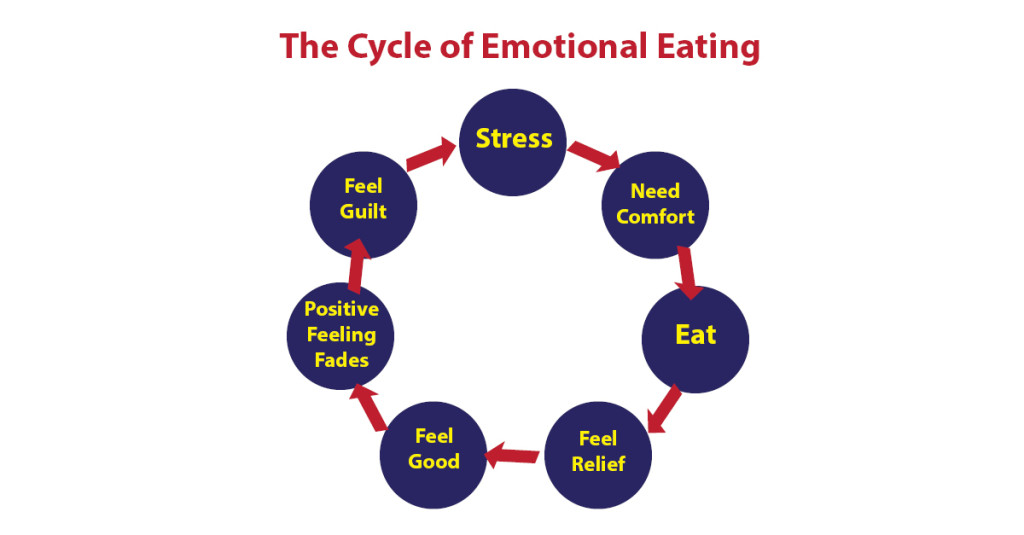“I’m an expert at losing weight. I’m just not an expert at keeping it off.”
I have treated people struggling with excess weight for 13 years and I hear this statement time and time again. For patients trying to manage their weight, most current solutions focus on medical treatment, diet modifications and exercise — all but ignoring the mental and emotional aspects of wellbeing and weight-loss.
Experts estimate that 75 percent of our overeating is triggered by emotions rather than physical hunger. Emotional eating is turning to food for comfort, stress relief, celebration or as a reward rather than to satisfy hunger. As a bariatric behaviorist, I have learned not only do we need to educate people on HOW to lose weight, but help people understand WHY they eat.
Once you gain an understanding of your emotional eating patterns, I believe you will not only lose weight, but also be able to keep it off. Let’s start by assessing your own emotional eating patterns.

If you found yourself answering yes to the above questions, you are not alone. Every person has an emotional relationship with food. We eat when we are happy. We eat when we are sad. We eat when we are mad. We eat when we are bored. Emotional eating can turn into a problem when you feel as if food is controlling you instead of you feeling in control of the food.
Another sign that emotional eating may be a problem for you is if you are turning to food as a coping strategy. In fact, emotional eating is the no. 1 reason people will gain weight or regain lost weight. Therefore, I am addressing emotional eating every day in my practice as I work with people on their wellness journey.
It is important to mention that we are not all drowning our sorrows in chocolate chip cookies. Research suggests the no.1 emotion we eat for is HAPPINESS. Humans like to keep the good feeling going, and food can do that for us. We can also turn to food as a soother when our upset level is high. None of us like to feel upsetting feelings, so turning to our favorite comfort food can provide relief. Can you relate to the cycle below?

This is the frustrating part, emotional eating only “works” for a short time. My patients have taught me that comfort food brings relief in the moment, but as soon as they are done eating it they are plagued with a strong sense of guilt and shame. This in turn triggers them to eat more to numb out the guilt and shame. The up and down roller coaster of emotional eating has begun.
I am excited to share that you are not stuck on the emotional eating rollercoaster. You CAN exit the ride and change your relationship with food. I am delighted to be writing a 3 part series not only describing emotional eating, but giving you tools to EXIT your emotional eating cycle. Today, we have described what emotional eating is. In the next two days, I will provide you tools to exit and replace your emotional eating patterns.
About the Author:
 Lora Grabow, LMSW, is a speaker, teacher and counselor who partners with medical providers and educational professionals to empower bariatric patients to holistically change their lives. She has worked in bariatric medicine for the past 12 years providing patients the “headwork tools” they need to establish a healthy relationship with food. To learn more about Ms. Grabow, visit her Web site at www.LoraGrabow.com.
Lora Grabow, LMSW, is a speaker, teacher and counselor who partners with medical providers and educational professionals to empower bariatric patients to holistically change their lives. She has worked in bariatric medicine for the past 12 years providing patients the “headwork tools” they need to establish a healthy relationship with food. To learn more about Ms. Grabow, visit her Web site at www.LoraGrabow.com.





